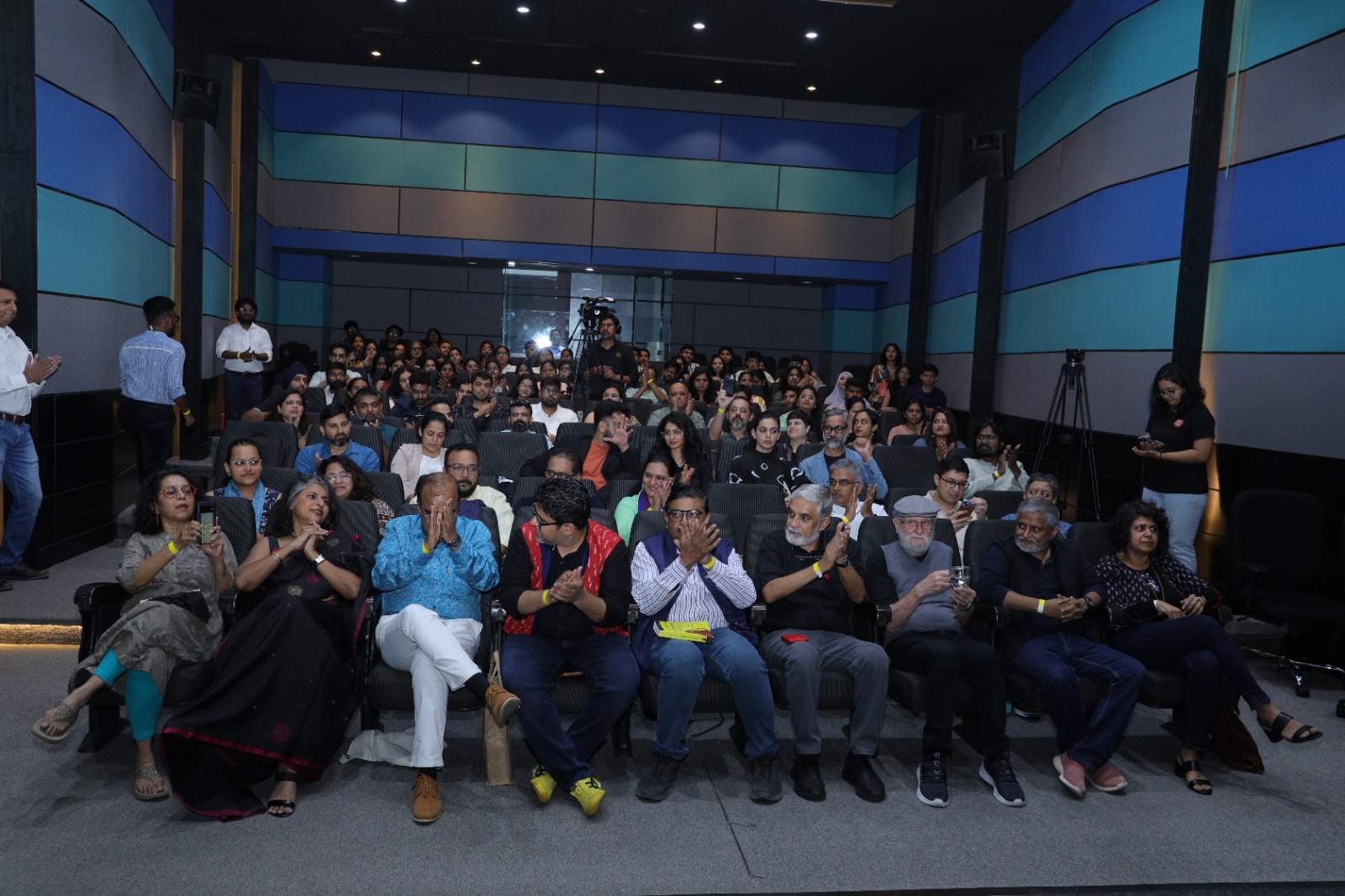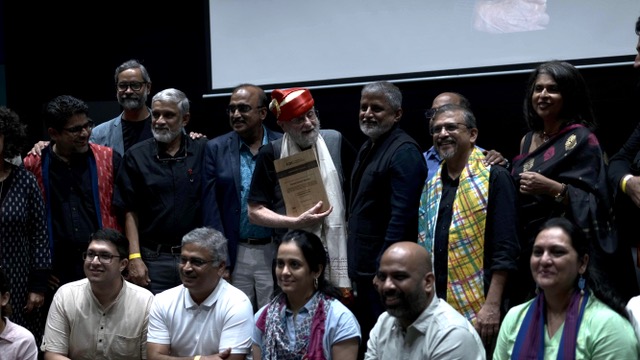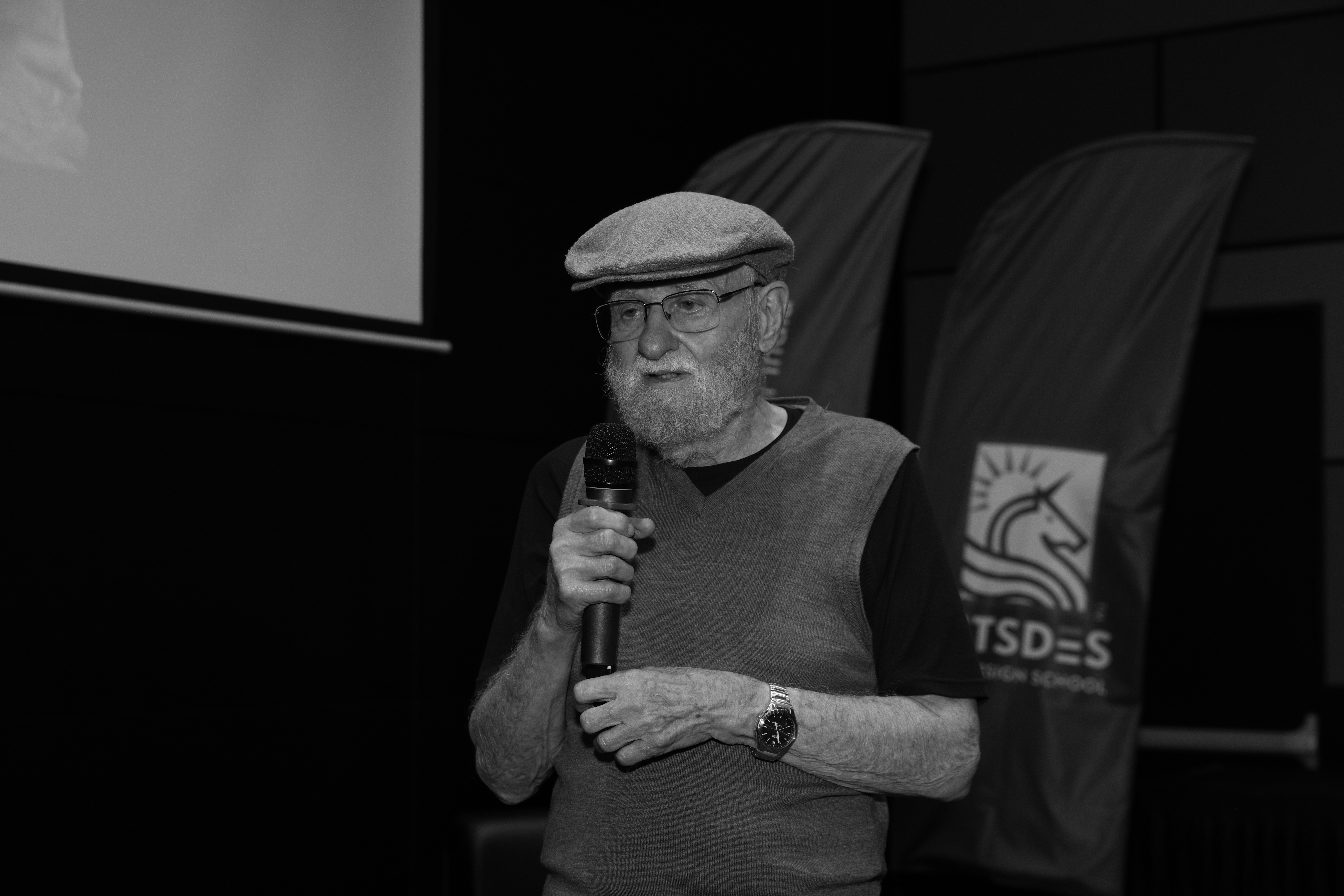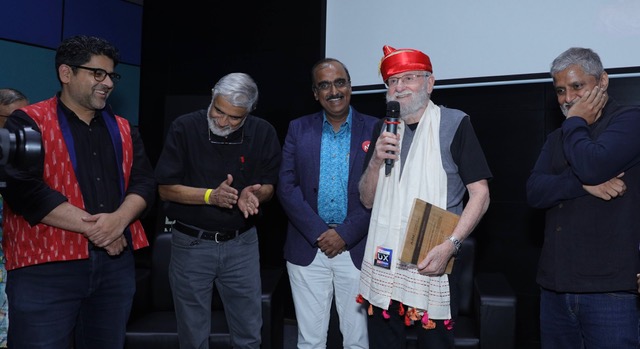Don's book "The Design of Everyday Things" has been an important work for many designers, including myself. As a student in the library, I came across this book and felt a strong connection. Don discussed everyday products in a way that anyone could understand in a simple manner. His approach helped reassure me that shifting from architecture to product design was a good choice. Don has broadened the concept of user centered design over time to include human-centered design and eventually humanity centered design which now considers all living things as well as their surroundings.
Fast forward to present I found myself introducing Don Norman to a packed auditorium. It felt like a full circle moment, from learning about his work as a student and now interacting with him at the ADI event. When we opened registrations, the response was overwhelming, crashing our website—a sign of the interest within the community.
Speaking with him, I realised that his advice extends beyond design. He was pushing us to leave our comfort zones. "You want to be more powerful as designers? Learn the language of business. Discuss margins, profits, and losses. If you want to have a significant impact, you must first understand these concepts. He wasn't just encouraging us to make things look nice; he was urging us to influence how they are designed, used, marketed and sold.
Particularly interesting was his "dandelion model." He compared scaling ideas to blowing dandelions. Although not all seeds germinate, those that do have the potential to disperse widely. That is important to have a multiplier effect for an idea to spread and seed. The metaphor seemed to have resonated with a lot of people in the room.
Don was candid about artificial intelligence. He warned us not to be worried, but to confront it. "If you ignore AI, it will be your loss," he warned. He wasn't referring to the distant future; he meant right now. Designers must experiment with AI, learn about it, and determine how to use it effectively.What also struck home was the thoughts around policy design. "A design or a policy is worthless until it's executed," That is an ongoing battle here: getting brilliant ideas out of our heads and into the real world, where they can make a difference.
The discussions also touched upon his time at Apple. Don talked about his experience designing the Newton PDA, which did not take off. However, there was a good lesson there, if you don't understand what users want, even the best technology will fail, so true.
It was interesting when Don mentioned that he enjoys being challenged by students. "If I am wrong, I want to know so I can change," he told us. Even at the age of 88, Don remains open, humble, and eager to learn. His energy throughout the event, even taking time to sign books was kind of a reminder that, no matter how far we have come, we must continue to learn and grow. Thank you Don.
This event was possible by the leadership of ADI Pune, particularly Nishma Pandit Yogesh Dandekar and support of Nandita Abraham with able support from our community manager Anshu Ajmani and Team ADI Pune & Team BITS Design School Mumbai .
Thank you Rugwed Deshpande, Yogesh Dandekar, Nishma Pandit, Anshu Ajmani, Wasim Khan and team, Ashwini Deshpande and team, Sarvottam Kulkarni, Geetesh Nandanwar, Riya Gondkar, Susmit Nimbhorkar, Mukesh Samleti, Siddharth Kawthekar and all who helped make this a memorable event. A lot goes on behind the making and preparation of an event like this. Thank you 🙏🙏
ADI aims to build a strong community that nurtures professional talent, advocates for design and create a platform for exchanges like like these. Connect with us and join the movement.
President, NEC- ADI 2024-26 | Designer, Director, Ticket Design








